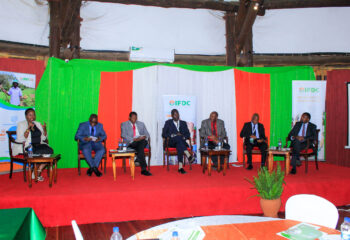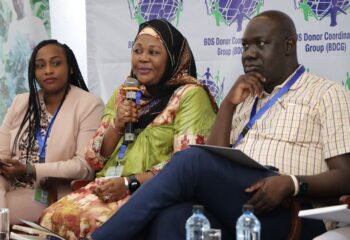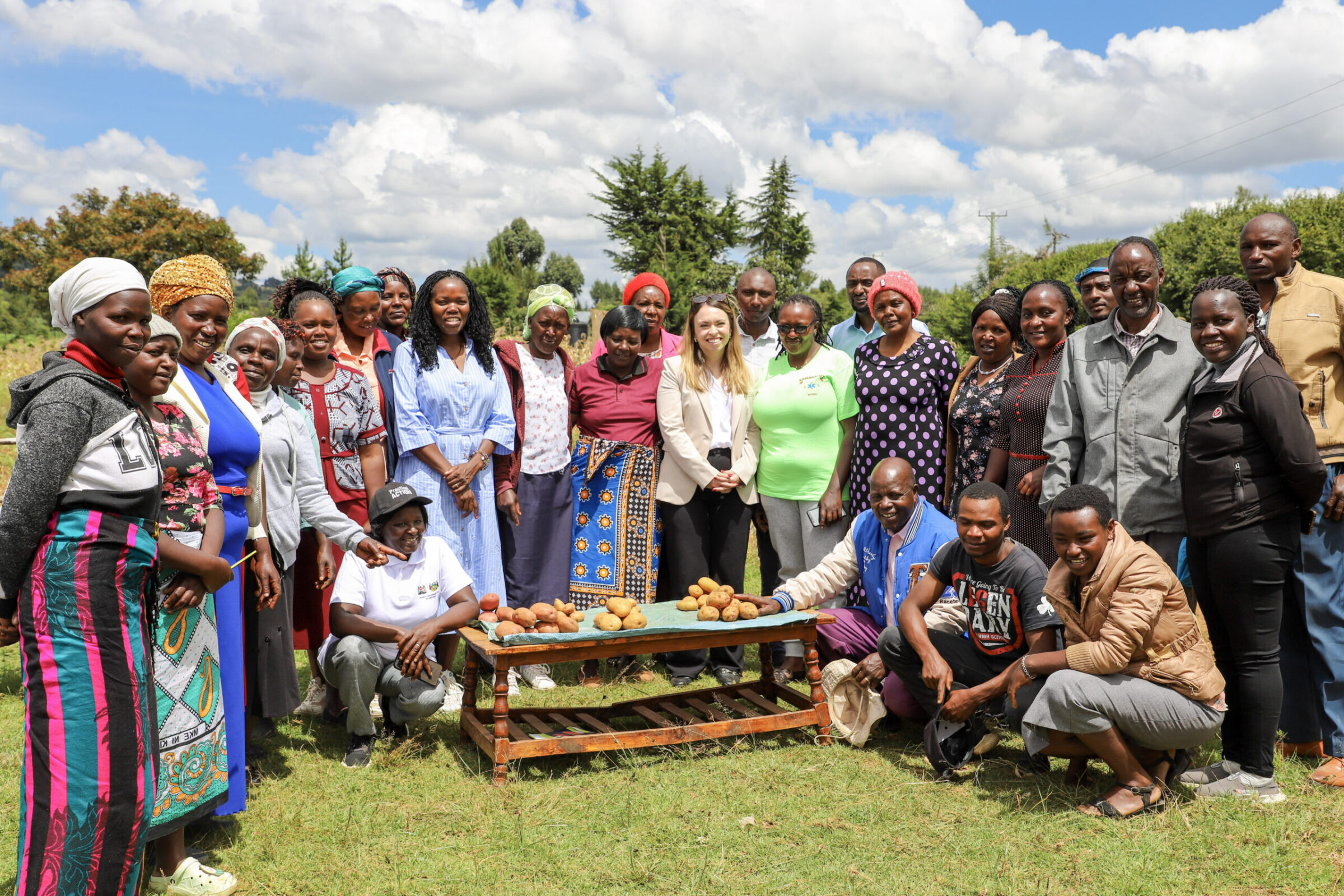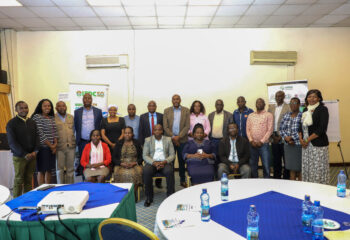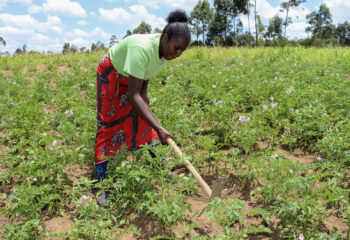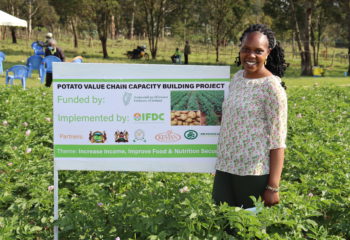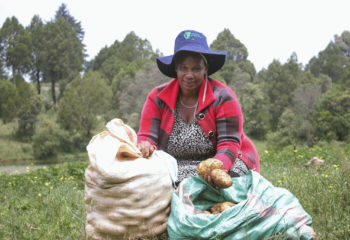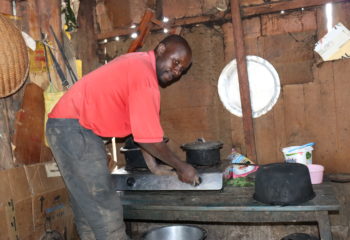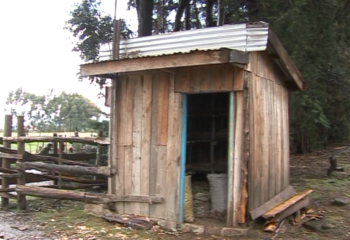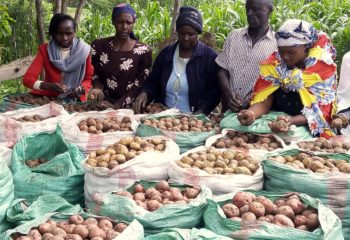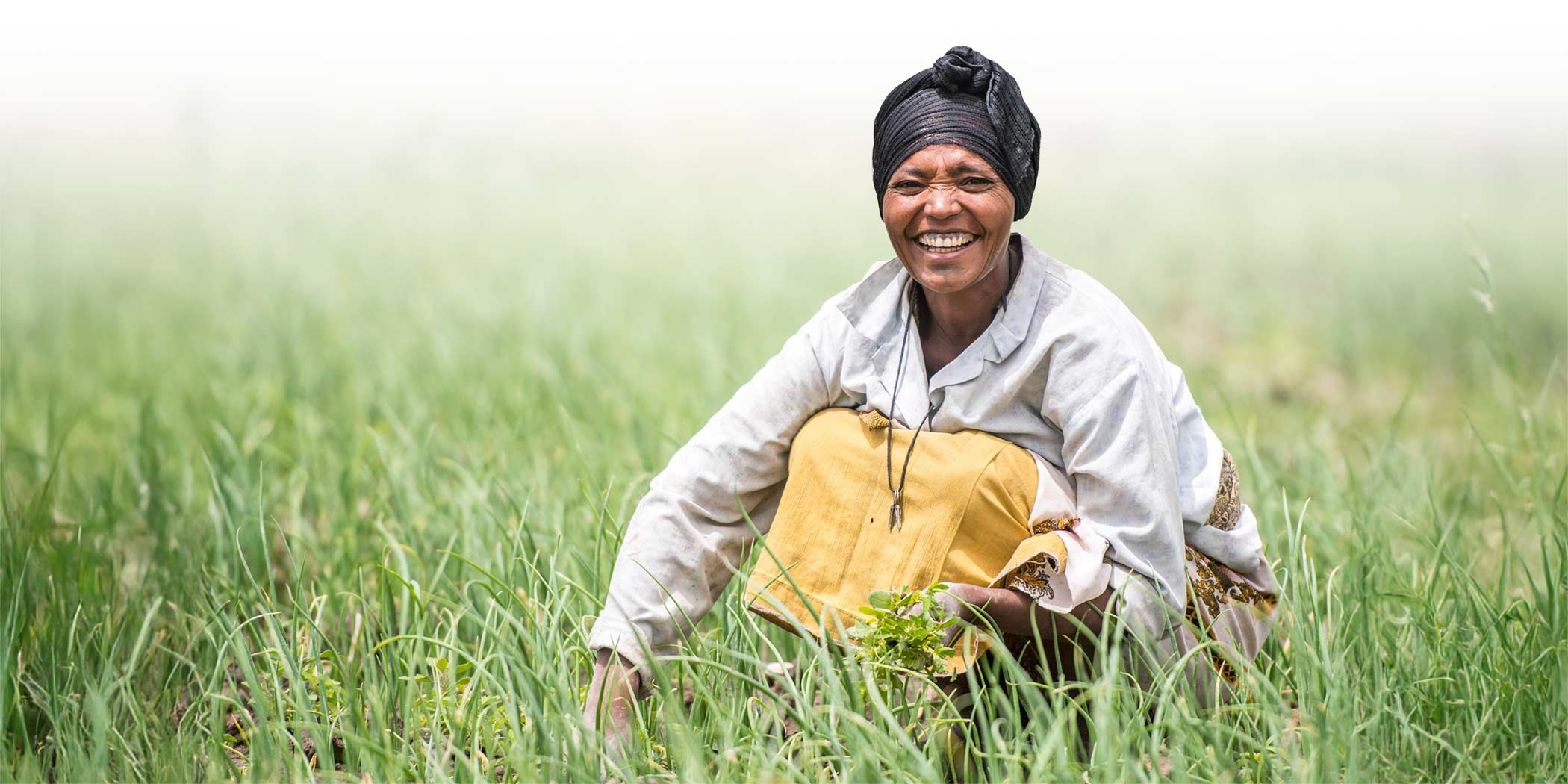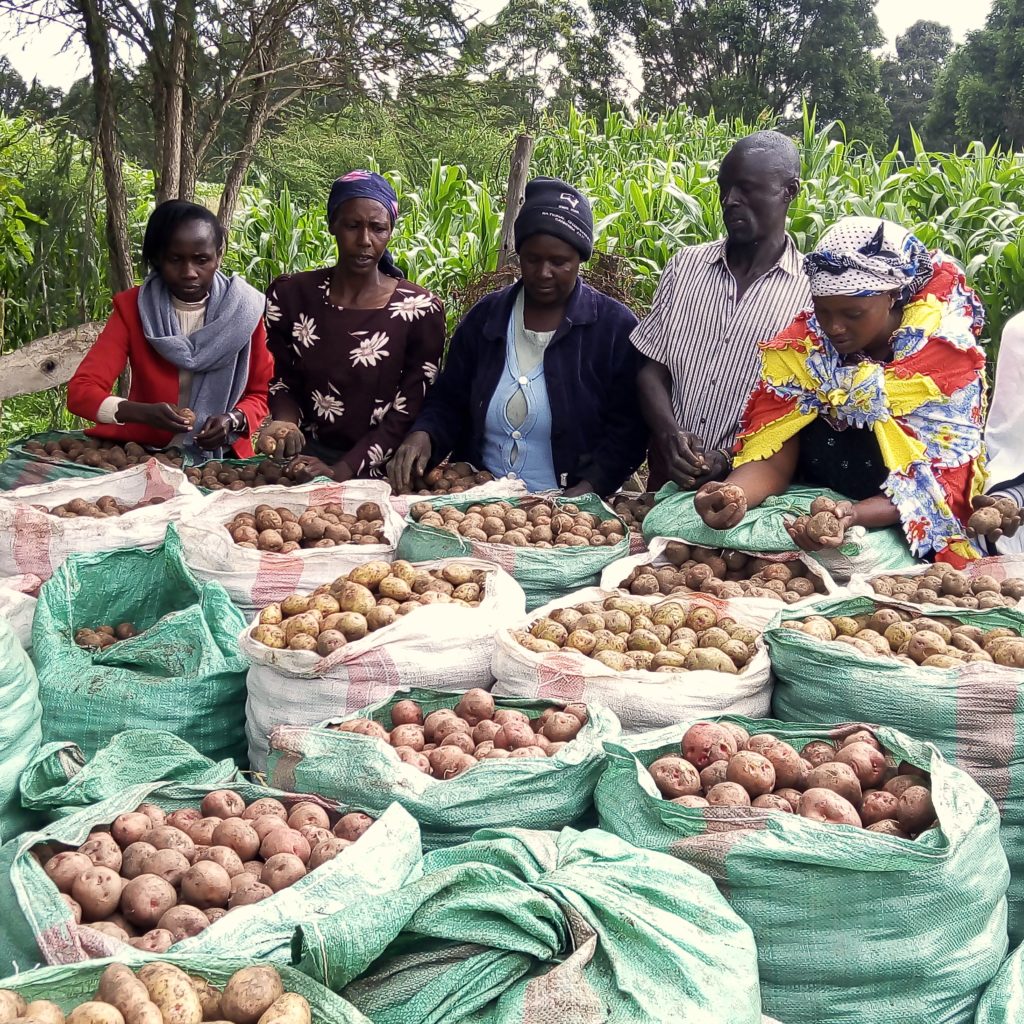
PCB (2018-2024), funded by the Embassy of Ireland in Kenya, was designed to improve the livelihoods of small-scale farmers and families through the adoption of new technologies, including certified potato seed and new varieties, good agricultural practices (GAPs), improved farm management skills, and market access.
PCB Components
Strengthening the Potato Seed Production and Supply Chain
Availability and affordability of clean certified seed is arguably one of the greatest challenges in the potato value chain, especially for processors. The project explored innovative models for creating demand for last-mile input delivery, including seed, fertilizer, and agro-chemicals.
Farmer Education
Practical, hands-on training programs equipped trainees with knowledge about various superior potato varieties, water and soil management methods, quality control, post-harvest handling, and other areas using field demonstration plots.
Demand-Driven Extension Services
Training was conducted by experts from the Ministry of Agriculture, research agencies, and the agri-food industry, embracing a hands-on practical training model to develop skills, particularly for youth and women, in potato production areas. The project also trained select lead farmers on topics such as GAPs, spray service provision, etc., to create a backup to the government extension system. This was to improve the quality of extension services and gradually build up a cadre of trained and well-equipped extension/technician agents. It was also to create farmer demand for professional extension services.
The project explored innovative models for creating demand for last-mile input delivery, including seed, fertilizer, and agro-chemicals.
Increasing Market Knowledge and Access
The project worked with various partners to avail market information to farmers through interactive and innovative channels, train and facilitate linkages with formal and informal markets, and determine how to sustain these linkages and relationships.
Facilitating Access to Finance
The project facilitated linkages between farmers and financial institutions that customized products to suit farmers’ needs and capabilities. This was coupled with training and promoting local solutions using practical group savings and lending models.
Institutional Capacity Building
Efficiencies along the seed certification process need to be improved to ensure adequate production and efficient distribution of seed for processing varieties. The project facilitated knowledge-sharing, research and capacity building of government research institutions and regulatory bodies, such as KEPHIS, through exchange programs, and joint research and formal training in partnership with institutions from Ireland, such as Teagasc and Sustainable Food Systems Ireland (SFSI).
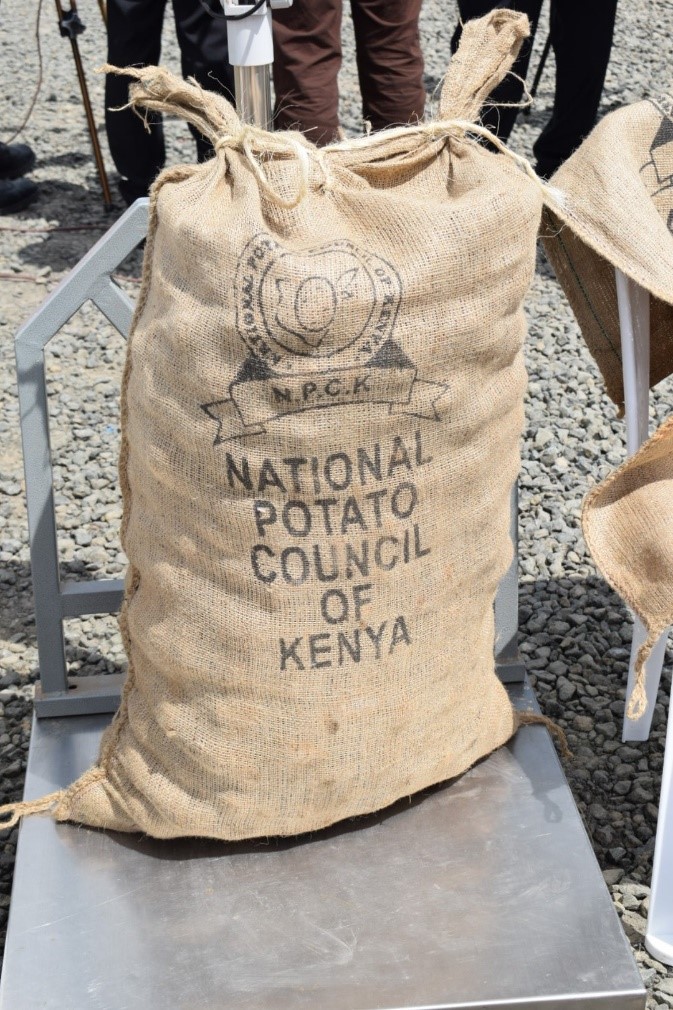
Results
The overall goal of this project is to improve the incomes of smallholder farmers and strengthen agribusiness linkages between Kenya and Ireland. Specifically, the project aims to:
- More than 12,000 farmers participated in field days to learn about yield-enhancing technologies, nutrition, and other relevant topics.
- Project farmers to attained a remarkable yield advantage over the local practices, and yield increased from 34 50-kg bags to 90 50-kg bags, translating to a 165% increase in production.
- Demand for certified seed grew, with its use in Nyandarua rising from 7% to more than 18% in 2022.
Partners
- Sustainable Food Systems Ireland (SFSI)
- County Government of Nyandarua
- National Potato Council of Kenya (NPCK)
- Teagasc
- Kirinyaga Seed Limited (IPM Potato Group and Kevian Kenya Limited)
- International Institute of Tropical Agriculture (IITA)
- International Center for Insect Physiology and Ecology (icipe)
- Kenya Plant Health Inspectorate Services (KEPHIS)
- Kenya Agriculture and Livestock Research Organization (KALRO)
- Toyota Tshusho Fertilizer Africa (TTFA)
- Yara East Africa
Impacts
2024
- Advanced Kenya’s agricultural systems through the development of a comprehensive communication strategy, 10 strategic priorities, and a monitoring framework to enhance stakeholder awareness and crisis preparedness.
- Constructed a 120 metric ton storage facility to reduce post-harvest losses and boost incomes, through a key partnership with the Pesi Farmers’ Cooperative Society.
- Validated a joint implementation plan and roadmap focused on creating awareness, mobilizing resources, enforcing market standards, training inspectors, and registering growers and cooperatives.
2023
- Held 12 field days across Nyandarua County, reaching 1,050 farmers.
- Trained 144 lead farmers to become customer agents as well as aggregation sale agents for IPM Kenya; as a result, these lead farmers have in turn trained 1,813 others.
- Provided 564 farmers access to certified seeds by implementing the extension and marketing strategy by IPM Kenya.
- Reduced post-harvest losses from 8% to 4.6%.
- Trained two community-based organizations (CBOs) on aggregation, contract creation, and negotiation skills.
- Trained 1,139 farmers on the use of market information systems such as ViaziSoko.
2022
- Over 960 smallholder farmers have improved on the productivity and profitability farming hence increased food and nutrition security.
- 960 (76% women) people have better knowledge and understanding of nutrition, healthy diets and hygiene .
- Over 2,900 farmers have improved their understanding on importance of crop rotation and diversification of crops towards achieving climate smart agricultural practices.
- Through adoption of new and improved technologies in potato production, farmers have seen a 60% increase in productivity thus enhanced food security, increased income and improved livelihoods.
- PCB trained 42 lead farmers (21 female and 21 male) as ToTs to cascade knowledge on kitchen gardening activities, crop rotation, water harvesting technologies and climate smart agriculture.
- Over 122 farmers were facilitated to attend exposure visits such as peer to peer learnings, national, African Region and World potato conferences in Nairobi, Malawi and Ireland, and exchange learnings with the processors.
- Supported 2 youth groups with 800kgs of pre-basic potato seeds (planting material with very high genetic material free of pests and diseases). Through the engagement, over 6 tonnes of clean seed were realized by the end of the cropping season.
2021
- Enabled about 900 smallholder farmers to realize their full potential and reap the benefits of potato farming as a business by linking them with buyers.
- Facilitated the delivery of approximately 250 mt of potato, worth nearly U.S. $50,000, to processing markets through contract farming.
- Reached 1,929 farmers (66% female) directly and another 2,255 indirectly through field days.
- Trained over 1,900 smallholder farmers on proper feeding of infants, integration of kitchen gardening practices, and food diversification strategies.
- Mobilized over €300,000 in 2021 from the public and private sectors.
2020
- Reached 1,558 farmers (56% female) using the Farmer Field Business School training model.
- Trained 3,827 farmers directly and over 6,000 others indirectly.
- Availed over 100 mt of certified potato seed and 350 mt of clean seed multiplied by farmers using skills acquired from the project.
- Trained 95 lead farmers who cascade farmer-to-farmer extension, thereby supporting government extension personnel.
2019
- 1,746 farmers (60% women) trained using the farmer field business school (FFBS) model and 4,300 beneficiaries were indirectly through various learning platforms, including field days, conferences, and agricultural fairs.
- A total of 50 trainers were trained as FFBS facilitators (39 lead farmers and 11 extension staff).
- The project has taken the lead in identifying challenges in late blight management and rallied partners to address the issue – first by convening private and public partners to develop an action plan that will help relevant government agencies provide guidance on blight management products that are allowed in the country.
- 31 farmers contracted to supply potato to two buyers. The project linked the farmers to Agri-wallet, a mobile-based financing platform.
- Assisted in the regulation of potato sales in Kenya, with the passing of the 2019 Crops (Irish Potato) Regulation, which requires weighing of all sales and limits bag size to 50 kg.

